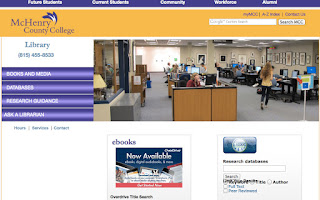Contributed by Gabriel Decio,
Instructor of English
Some of us have may come to Canvas partly enthused about the prospect of a new system and partly apprehensive about such a prospect. I have been using Canvas as my LMS in my two online, one blended, and three face-to-face courses since January. I like Canvas, and, while at first I missed Angel, I soon learned to appreciate Canvas’ more straightforward uploads and linear structure.
Canvas works differently from Angel. There is no tree structure with folders within folders, Russian-doll style. It’s more like ducks in a row, except that you get to organize your items into modules and then, within the modules, you organize them into subgroups using text headers. Everything is listed in a linear manner.
You may upload or create pages and quizzes, and once you publish them, students can view them. The image below shows a screen shot of one of my courses where you can see what appears on a student’s single screen.
 |
| The Linear Module Format |
One of the hot questions this year is going to be, “how do I upload my courses onto Canvas?” There are two ways to populate a course shell:
- You may upload an Angel cartridge of an existing course, or
- You may create your course materials on Canvas from scratch.
Uploading an Angel cartridge will upload all your files, but when you look at the course shell you probably will not recognize the list of files as the course with which you were familiar on Angel; it may all be in apparent disarray and the folders will have names like
0A856537075649AB9742A640335461B1. Your next task will be to develop a new structure for your course materials (remember, no folders on Canvas, just a linear structure), to create new modules, and to move all the pieces around to where they belong. Creating text headers will help you do this.
Creating a course from scratch sounds like too much work, but it took me the same amount of time as reorganizing the files that I had uploaded from an Angel cartridge in a different course shell. This is what I did: I downloaded all the material in my master Angel course onto folders on my hard drive so that my course looked exactly like it did on Angel. This also gave me the chance to give the folders names of my choice. My next step was to reinterpret the tree/folder structure as a linear structure and to upload all the material in a way that made sense to me.
Uploading and developing material on Canvas was a breeze. You may create pages using a WYSIWYG editor that allows you to imbed photos and video. You create quizzes and surveys. And you may upload complex html files, Word files, or PDF files. After you create a page or quiz, you add that item to the module where you want it to appear. It is a two-step process: first create, then add it to a module.
One of my favorite features of Canvas is its
speedgrader. Click on it, and you are on your way to an effective grading session. The
speedgrader allows you to write comments and make visual editing marks in your students’ documents with ease, never leaving the screen of the assignment (view the image below for a screen shot of the speedgrader). Once you're done, you enter a grade and may also add comments linked to that assignment that will be sent to the student’s inbox. When you're ready to grade the next student’s assignment, click on the arrow next to the student’s name.
 |
| The speedgrader in action |
Six weeks into the semester, Canvas has become such a integral part of my teaching that I navigate through it, read and send messages, create pages and quizzes, and grade assignments without ever pausing to think about it. I still have a lot to learn, but now I am excited about what else I may be able to do with Canvas.
Want to get started? Use the Professional Development auto-registration system to register for one of the Canvas workshops (for clock hour credit!) in February and March.





